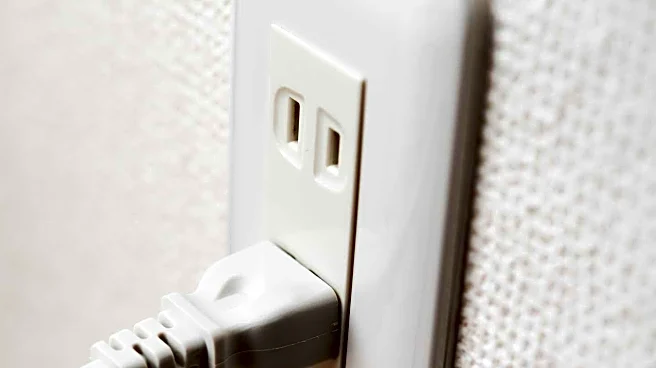What's Happening?
As utility costs rise, unplugging appliances when not in use is a simple strategy to reduce electricity bills. Many devices consume power even when turned off, contributing to 'phantom load' that increases costs. Unplugging devices like TVs, media players, and chargers can save energy. This practice, combined with other energy-saving measures, can significantly lower household expenses. The Department of Energy estimates that standby power accounts for 5% to 10% of residential energy use, highlighting the potential savings from reducing this load.
Why It's Important?
Reducing standby power consumption can lead to substantial savings for U.S. households, potentially lowering annual electricity costs by up to $165 per household. This not only benefits consumers financially but also contributes to environmental conservation by reducing carbon emissions. As energy prices continue to rise, adopting energy-efficient practices becomes increasingly important for economic stability and sustainability. Encouraging widespread adoption of these practices could lead to significant national energy savings and environmental benefits.










